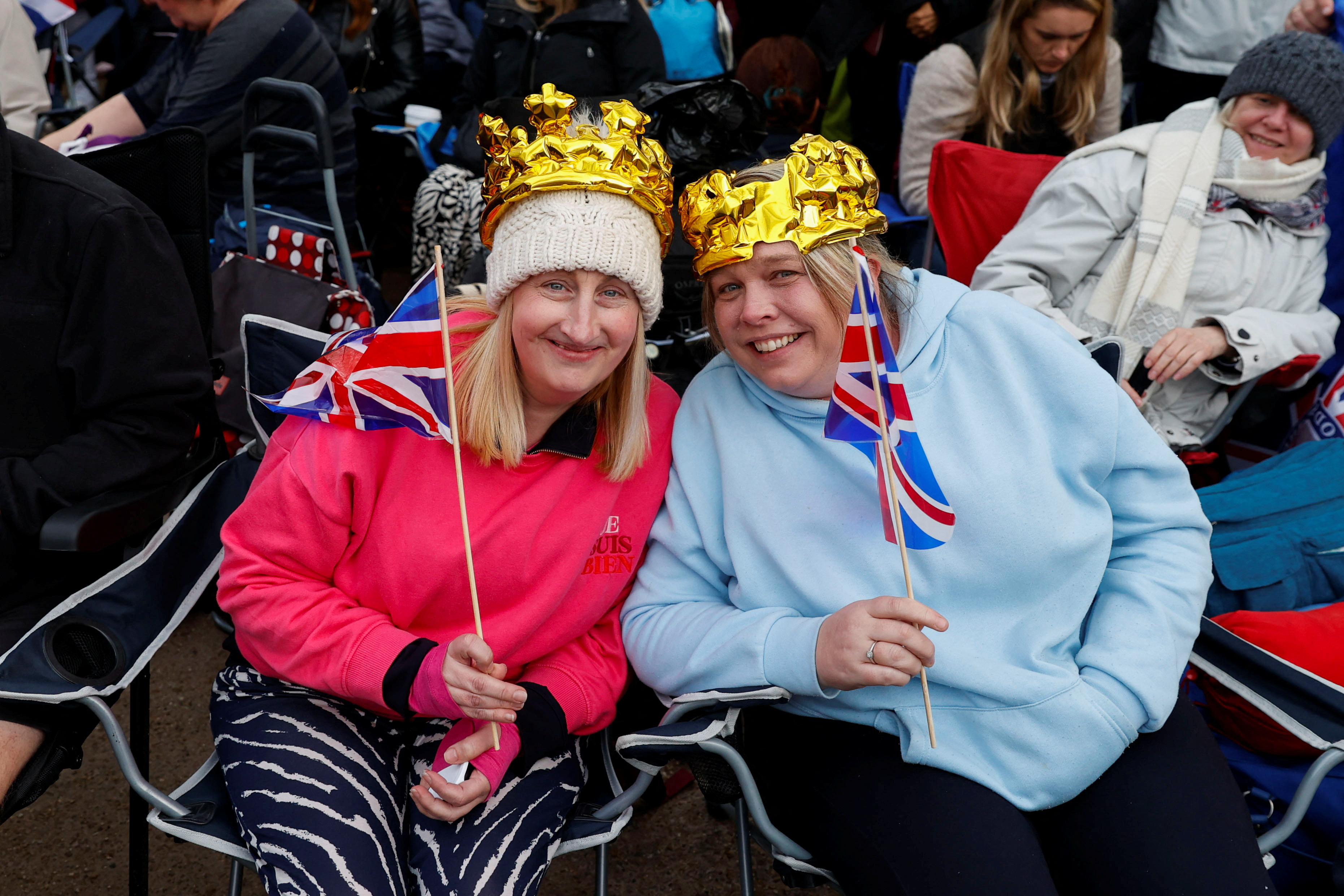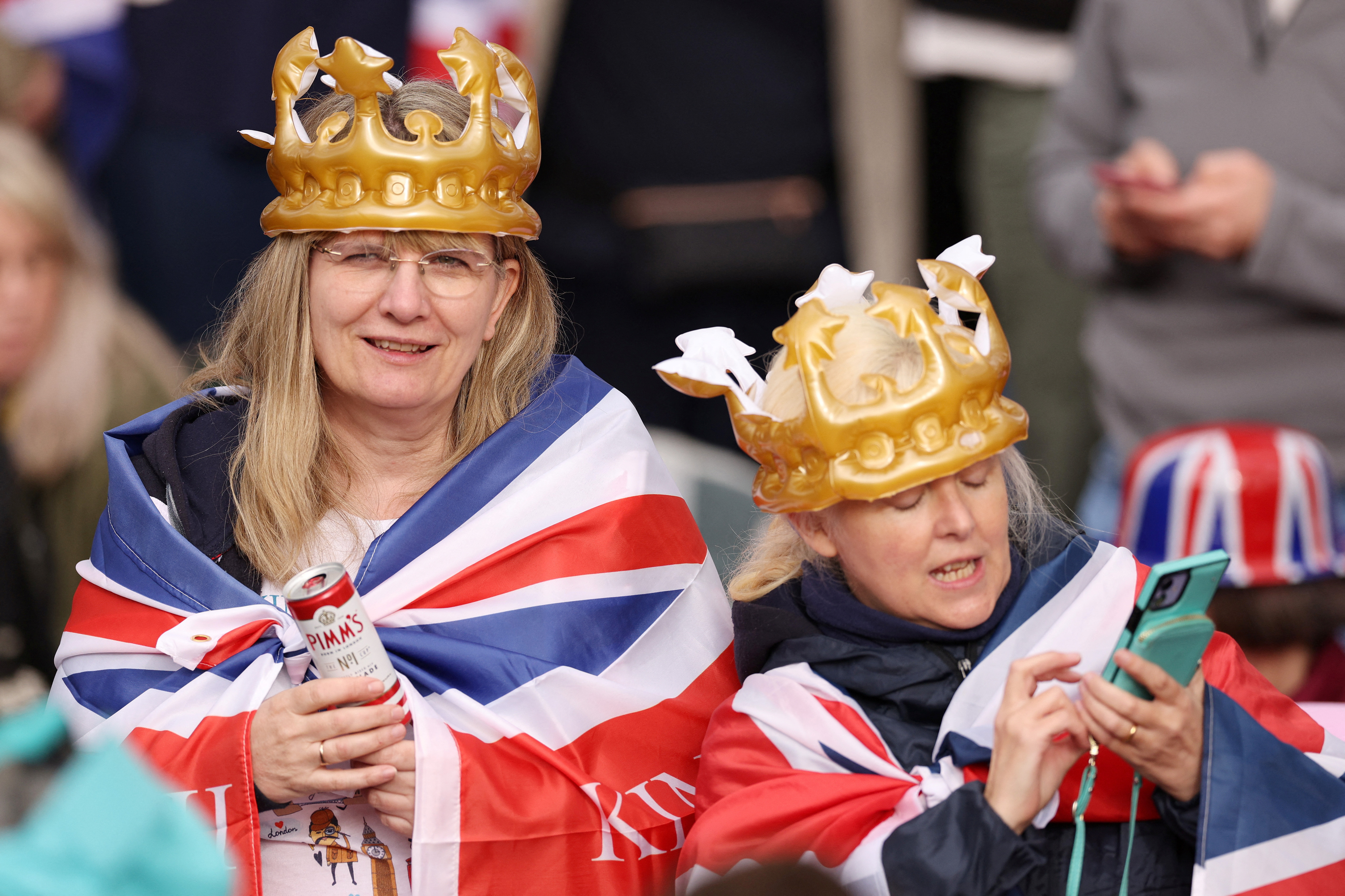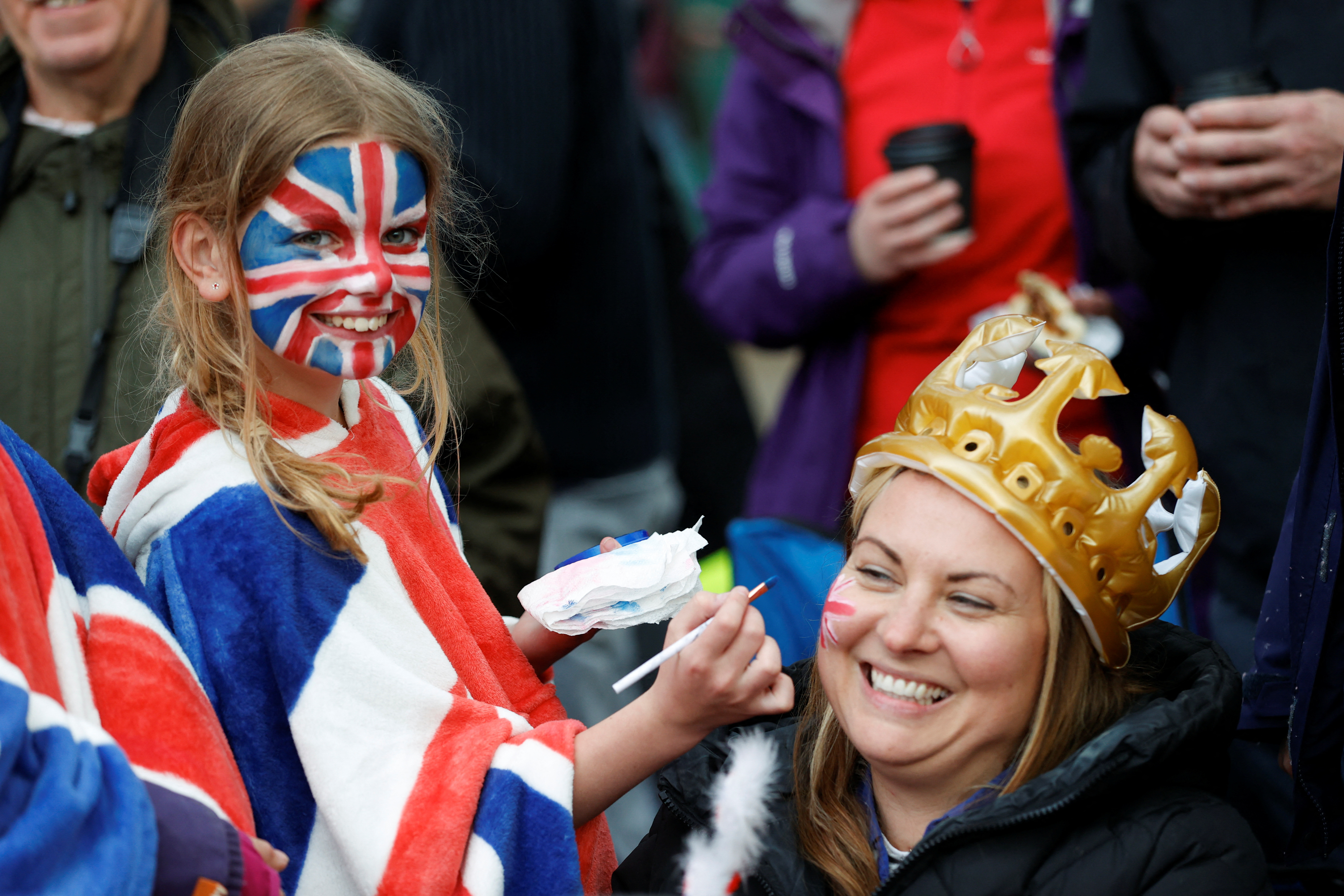On Saturday, tens of thousands of people of all ages braved the rain to catch a glimpse of the newly crowned King Charles in the streets of London and on Buckingham Palace’s famous balcony.
People dressed in red, white, and blue and clutching union flags and umbrellas lined the streets from early morning for the first coronation in Britain in 70 years, hoping to share a historic occasion and what many saw as a moment of national unity.
Charles and Queen Camilla appeared on the balcony with the heir to the throne Prince William and other senior royals to watch a fly-past, which was scaled down due to cloud and rain.

“It was a brilliant way to end what had already been a brilliant day,” Katie Mitchell, 25, who had gotten close to the Palace, said.
“It was amazing to see them all there in real life, just like you’d see on a postcard.”
Many people in the crowd had brought stools or steps to help them see over the crowds, and they were dressed up in elaborate costumes, including paper crowns and plastic tiaras.
While the service was taking place inside Westminster Abbey, strangers huddled under umbrellas to watch the ceremony on phones and iPads, or on big screens in parks.
Mick Windebank, 60, a builder from Surrey, described the moment the crown was placed on Charles’ head as “very emotional” while on his phone in St James’s Park.
“He’s been waiting his entire life for this moment.” “As heartbreaking as his mother’s death was, it’s his time,” he said.

After his mother, Queen Elizabeth, died in September, Charles, 74, ascended to the throne.
When the national anthem “God Save the King” was played near the end of the two-hour service, the crowds lining the procession route and listening on loud speakers joined in.
Many onlookers were struck by the sight of eight horses pulling the 260-year-old Gold State Coach carrying Charles and Camilla back to Buckingham Palace.
“We’ve had a monarchy for hundreds of years, and it’s our link to the past.” Where else would you get this kind of crowd?” Sarah Alms, a housewife in her 60s, agreed.
POMP AND SPLENDOUR
The procession included 4,000 officers, soldiers in scarlet coats and bearskin fur hats, military bands, and dozens of horses.
Those gathered were there for a variety of reasons.
Many older visitors wanted to show their support for Charles and the monarchy; for some, it was the start of a new era; for others, it was simply a time to celebrate and enjoy the pomp and splendor.

The coronation took place in the midst of a cost-of-living crisis and widespread public skepticism, particularly among the young, about the monarchy’s role and relevance, as well as its finances.
Charles, who had the longest reign of any British monarch, is not as well-liked as Queen Elizabeth, and his coronation did not draw the millions who flocked to the streets to witness her coronation in 1953.
A few hundred anti-monarchy protesters from the group Republic gathered among the well-wishers along the route, booing as Charles and Camilla passed by and holding signs that read “Not My King.” The group’s leader was arrested before the procession began.

However, polls show that the public generally approves of Charles as king, and a majority still supports the monarchy, despite the fact that younger people are far less interested.
Sam Mendenhall, a 27-year-old cafe worker from Bristol in southwest England, believes Charles is attempting to strike a balance between the monarchy’s nearly 1,000-year history and the modern face of Britain.
“I believe a lot of the issues he cares about are quite important,” he said, adding that Charles was “trying to be more inclusive.” Others lauded the king’s well-known environmentalist stance.
The monarchy’s appeal to tourists was also evident in the crowd, which included people from all over the world.
Manuel Olarte, who moved to London from Peru 40 years ago, live-streamed events for his family back home on his phone.
“I was surrounded by British people who were born in this country… but I felt at home,” he explained.


